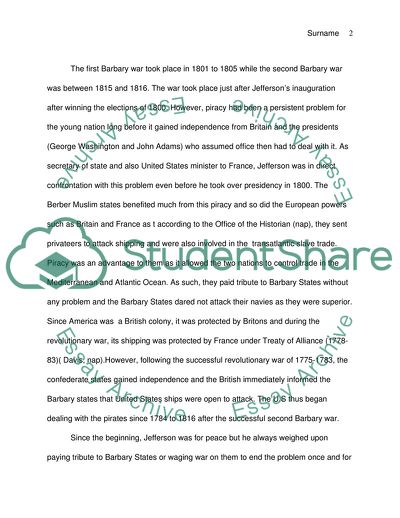Cite this document
(Thomas Jefferson and the Barbary Pirates Report Example | Topics and Well Written Essays - 2000 words, n.d.)
Thomas Jefferson and the Barbary Pirates Report Example | Topics and Well Written Essays - 2000 words. https://studentshare.org/history/1822516-thomas-jefferson-and-the-challenge-of-the-barbary-pirates
Thomas Jefferson and the Barbary Pirates Report Example | Topics and Well Written Essays - 2000 words. https://studentshare.org/history/1822516-thomas-jefferson-and-the-challenge-of-the-barbary-pirates
(Thomas Jefferson and the Barbary Pirates Report Example | Topics and Well Written Essays - 2000 Words)
Thomas Jefferson and the Barbary Pirates Report Example | Topics and Well Written Essays - 2000 Words. https://studentshare.org/history/1822516-thomas-jefferson-and-the-challenge-of-the-barbary-pirates.
Thomas Jefferson and the Barbary Pirates Report Example | Topics and Well Written Essays - 2000 Words. https://studentshare.org/history/1822516-thomas-jefferson-and-the-challenge-of-the-barbary-pirates.
“Thomas Jefferson and the Barbary Pirates Report Example | Topics and Well Written Essays - 2000 Words”. https://studentshare.org/history/1822516-thomas-jefferson-and-the-challenge-of-the-barbary-pirates.


